Lincoln University Sponsors Regenerative Grazing Training Led by Noble Research Institute
Office of Communications and Marketing
Young Hall
820 Chestnut Street
Jefferson City, MO 65101
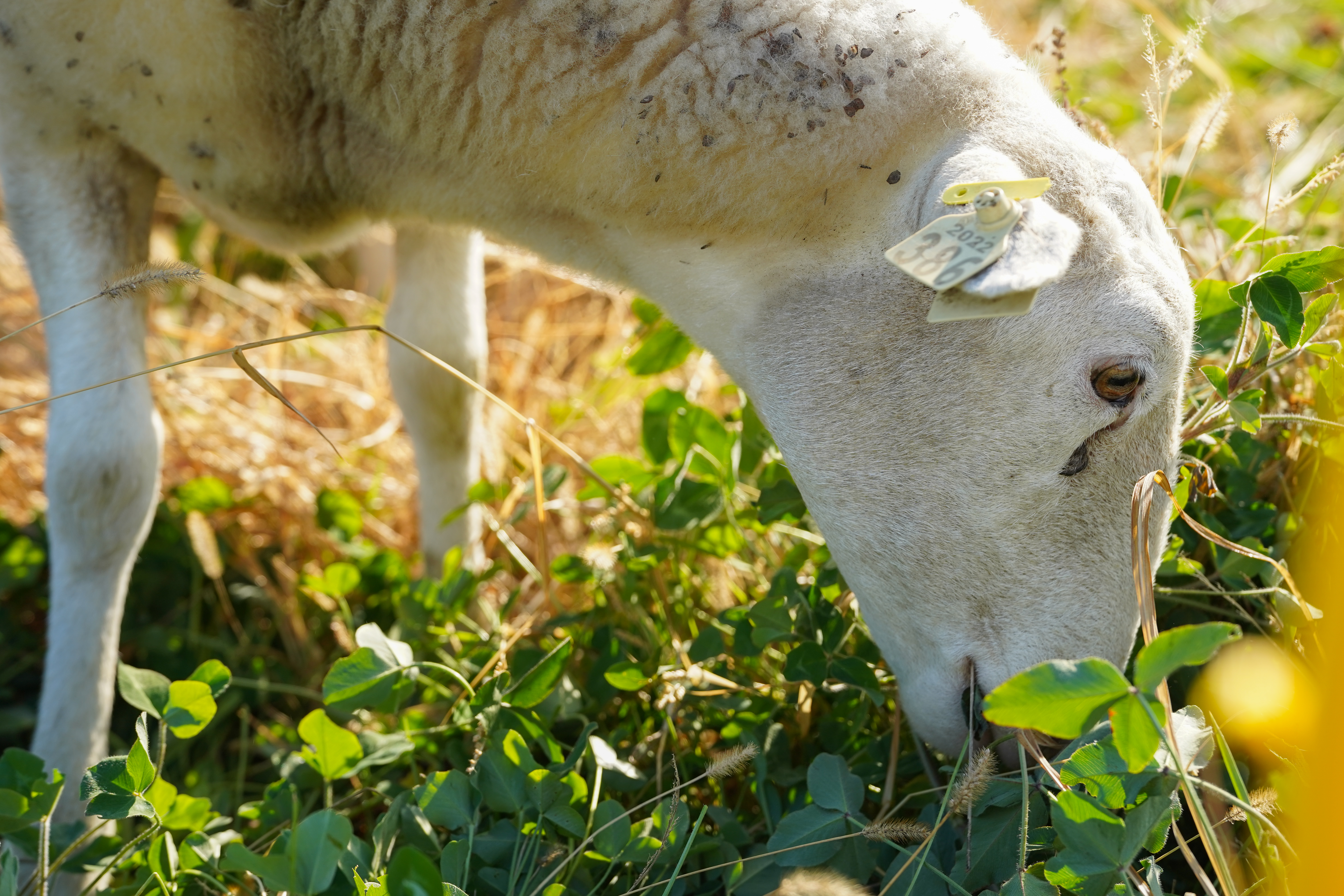 A sheep grazes peacefully, demonstrating the benefits of regenerative grazing practices that promote soil health and sustainable forage growth.
A sheep grazes peacefully, demonstrating the benefits of regenerative grazing practices that promote soil health and sustainable forage growth.
In alignment with Lincoln University’s College of Agriculture, Environmental and Human Sciences (CAEHS) commitment to outreach, education and strengthening communities, the institution sponsored Noble Grazing Essentials, a three-day training led by Noble Research Institute from October 22 to 24. Held at Lincoln University’s Carver Farm, the course combined classroom instruction with hands-on field activities, equipping participants with regenerative grazing techniques aimed at enhancing soil quality, boosting forage growth and building long-term agricultural resilience — all while reducing input costs.
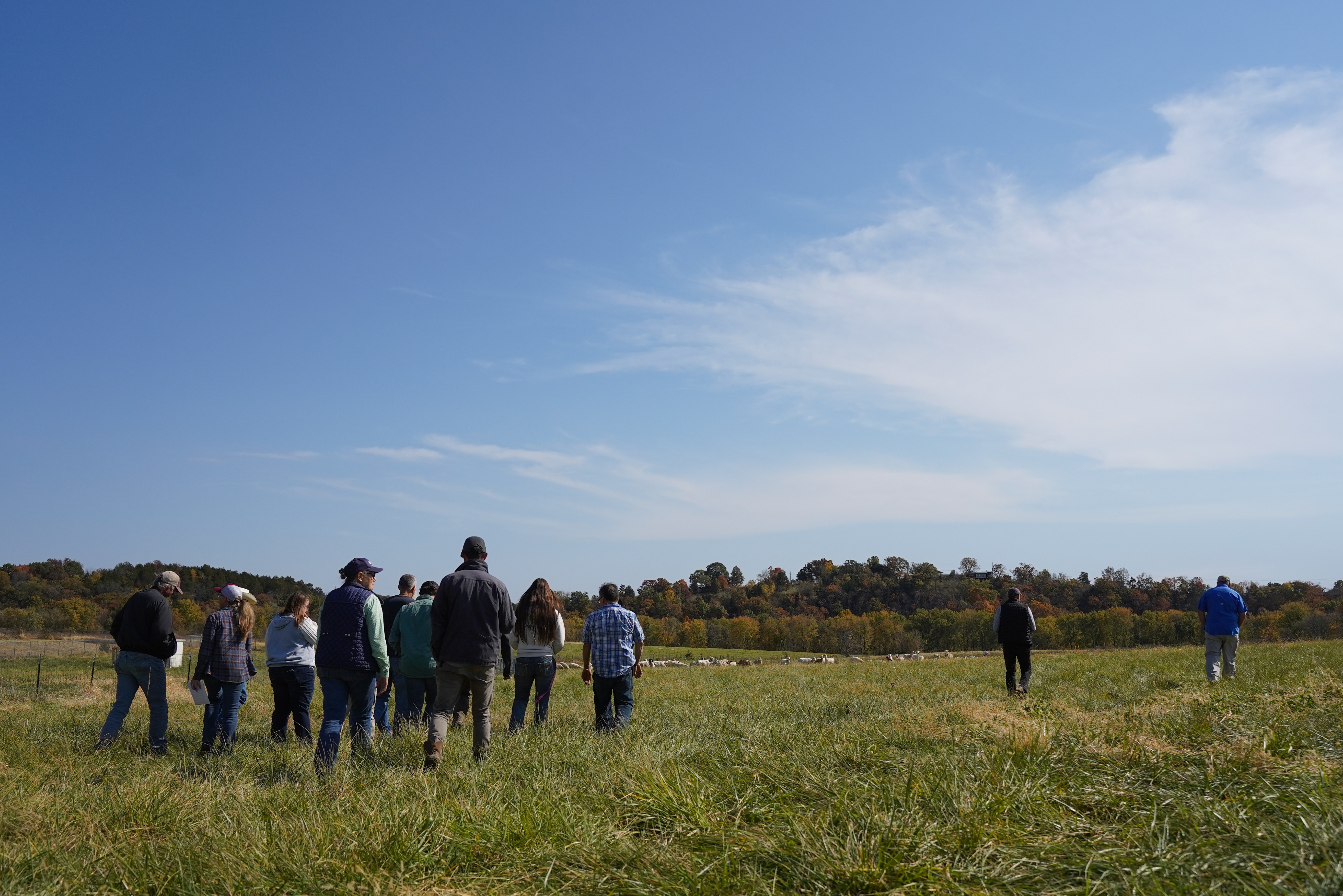
Participants of Noble Grazing Essentials walk through the fields at Carver Farm, Lincoln University, learning hands-on techniques in regenerative grazing to improve soil health and forage growth.
"Noble Research Institute has been a leader in regenerative grazing for years," said Chris Boeckmann, Lincoln University's farm superintendent, who organized the event. "When I saw the potential their practices had to improve soil health and profitability for farmers, I knew we needed to bring their expertise to our community." Boeckmann explained that rising input costs, like fertilizers and equipment, have pushed farmers to rely more on grazing their animals and making the best use of the grass and plants available in their pastures. By doing so, they can reduce the need for expensive feed and supplies, enabling them to keep their farms profitable.
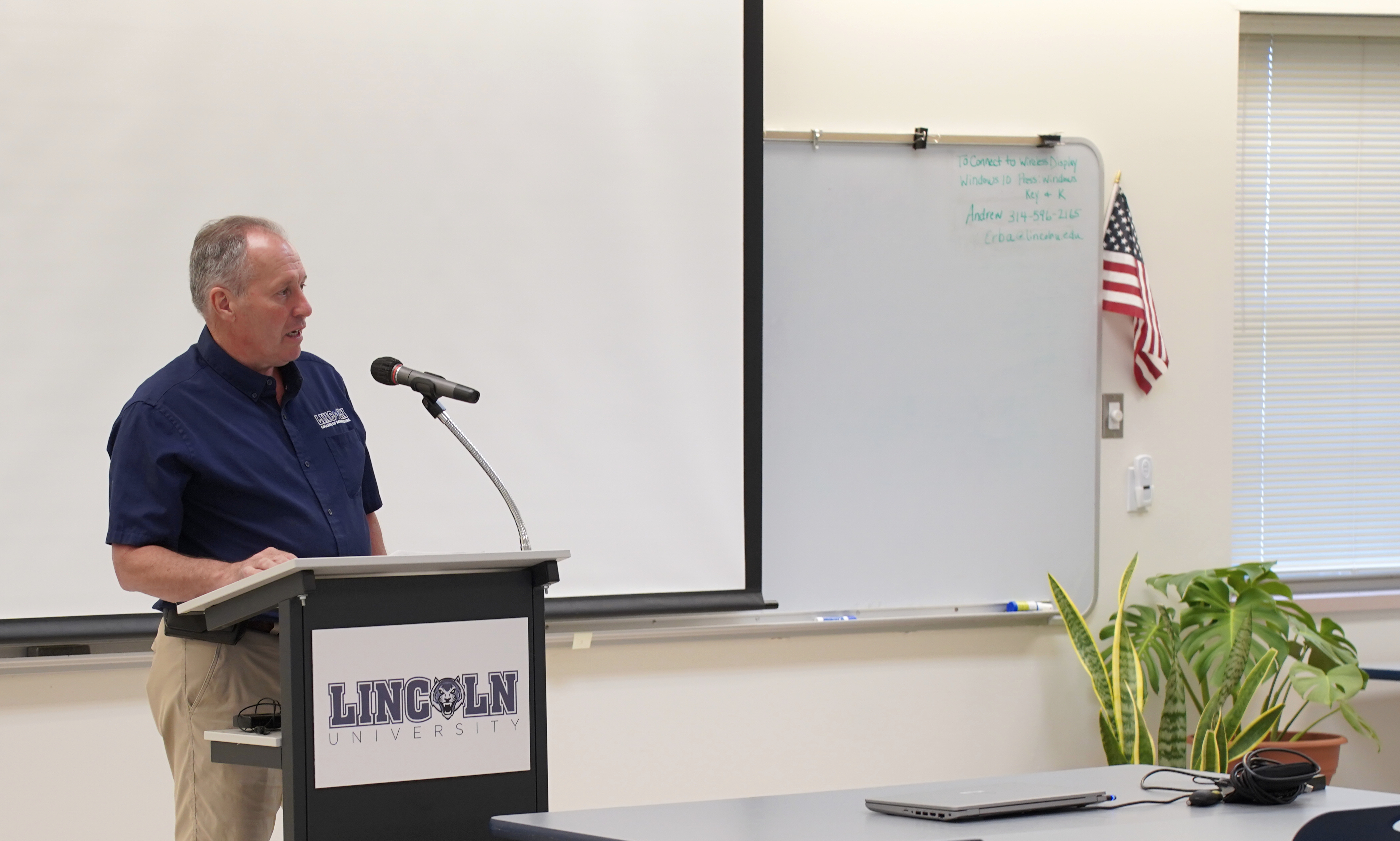 Chris Boeckmann, Lincoln University farm superintendent, speaks on the impactful work of Noble Research Institute and its contributions to advancing regenerative grazing practices.
Chris Boeckmann, Lincoln University farm superintendent, speaks on the impactful work of Noble Research Institute and its contributions to advancing regenerative grazing practices.
“We want to help you figure out and understand the grazing methods to accomplish your goals and objectives for your operation,” said Devlon Ford, Noble Research Institute regenerative ranching advisor, during the training. He explained that regenerative grazing involves rotating livestock in a way that allows pastures to recover fully, which fosters healthier ecosystems over time. This practice improves water retention, making the land more resilient during droughts, while deeper plant root systems help draw nutrients from the soil, enhancing forage quality for livestock and reducing the need for supplemental feed. Together, these benefits make regenerative grazing a valuable approach for farmers looking to create sustainable operations that thrive for generations.
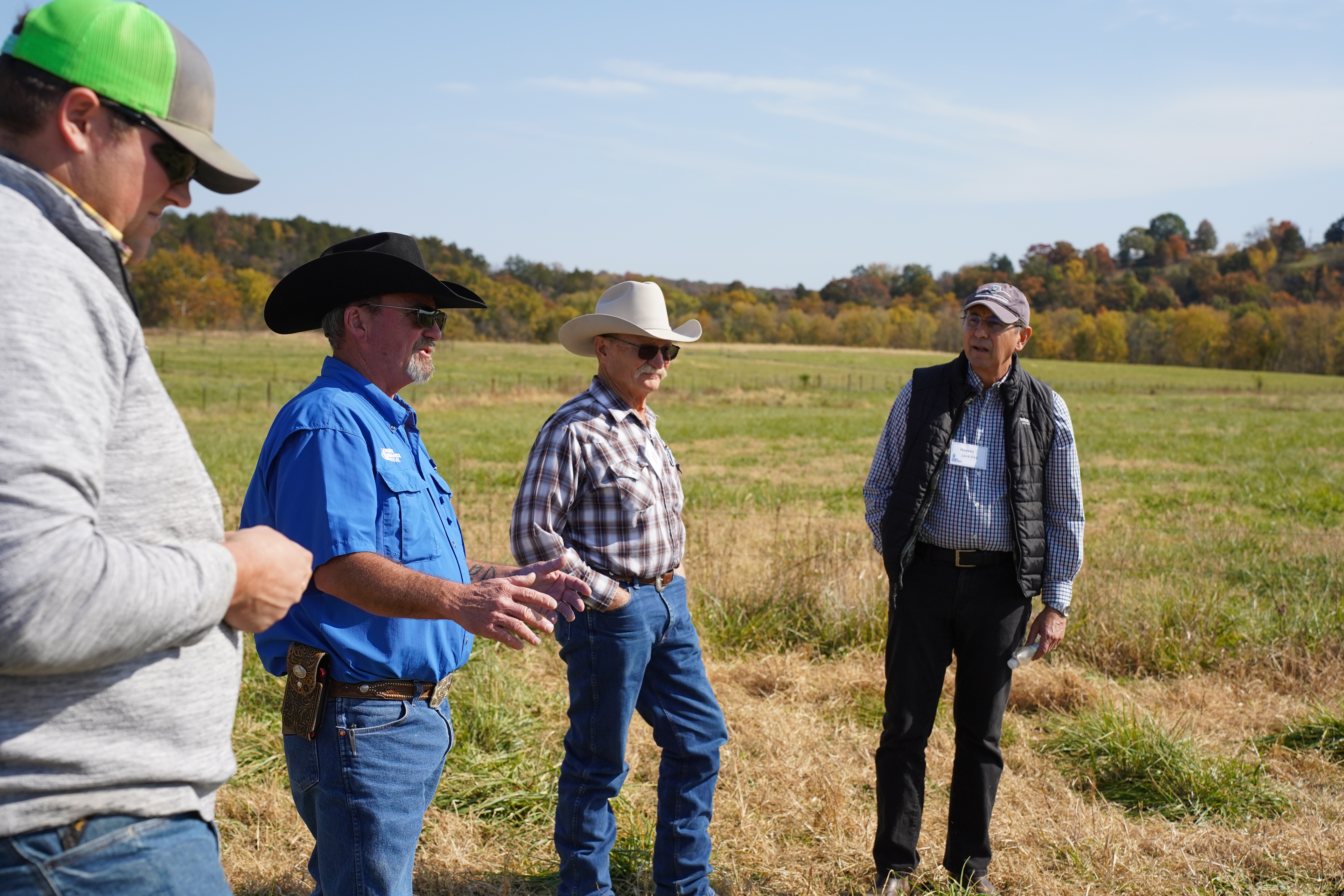
Devlon Ford (second from the left), regenerative ranching consultant, shares expertise on sustainable grazing techniques, emphasizing practical strategies for soil health and pasture resilience.
“Regenerative grazing is more than a set of rules — it’s a mindset,” Ford said, emphasizing the importance of adaptive management. He encouraged farmers to carefully observe the condition of their pastures and soil, making adjustments as needed rather than following a strict plan. “Your land will show you what it needs if you pay attention,” he said. By continuously monitoring plant recovery, soil health and livestock behavior, farmers can make informed decisions that promote efficiency and productivity. This flexible approach empowers farmers to respond to changes in their land. “We want to help you become confident decision-makers,” Ford said to participants, “so you can manage your animals and forages effectively based on what you see.”
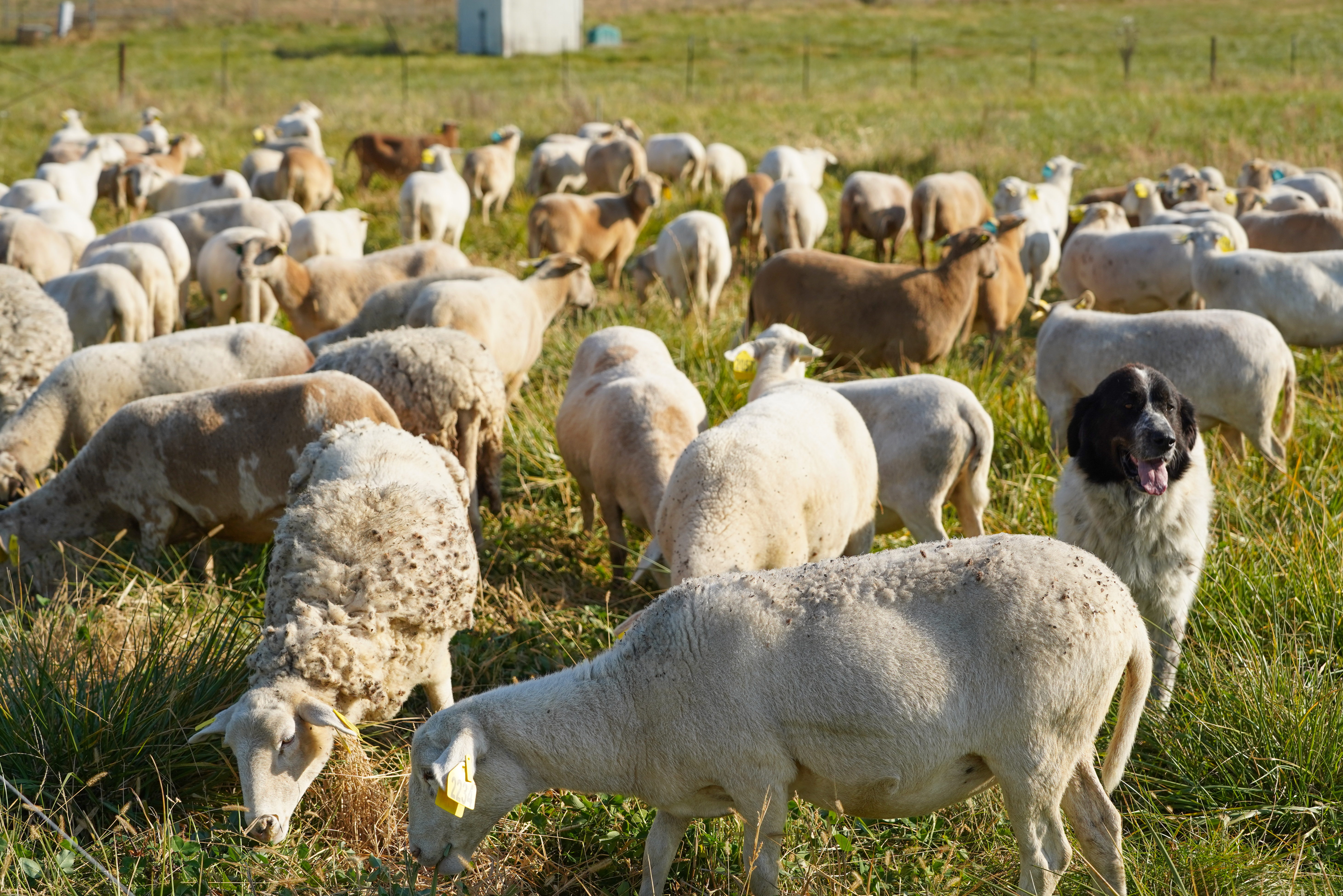 A flock of sheep graze across the pasture, showcasing how managed grazing supports ecosystem balance and pasture vitality.
A flock of sheep graze across the pasture, showcasing how managed grazing supports ecosystem balance and pasture vitality.
Participants in the course praised its practical nature, noting that it provided them with actionable insights to improve their grazing systems. "I’ve been rotating my cattle for years, but this course really opened my eyes to the importance of observing soil conditions and adjusting my methods accordingly," said one private producer who attended the training. The hands-on experience, combined with Noble's emphasis on adaptive management, gave attendees the tools to not only implement new techniques but also to refine their existing practices.
The event brought together a diverse mix of private producers and Lincoln University staff, fostering a collaborative learning environment. This combination enriched the training, as participants with varying levels of experience shared insights and challenges. “It was great to have that mix between university extension specialists, researchers, farm staff and private producers in the community,” Boeckmann said. “Some producers were more advanced in grazing, while others were just getting started. The interaction allowed everyone to exchange ideas and learn from each other.”
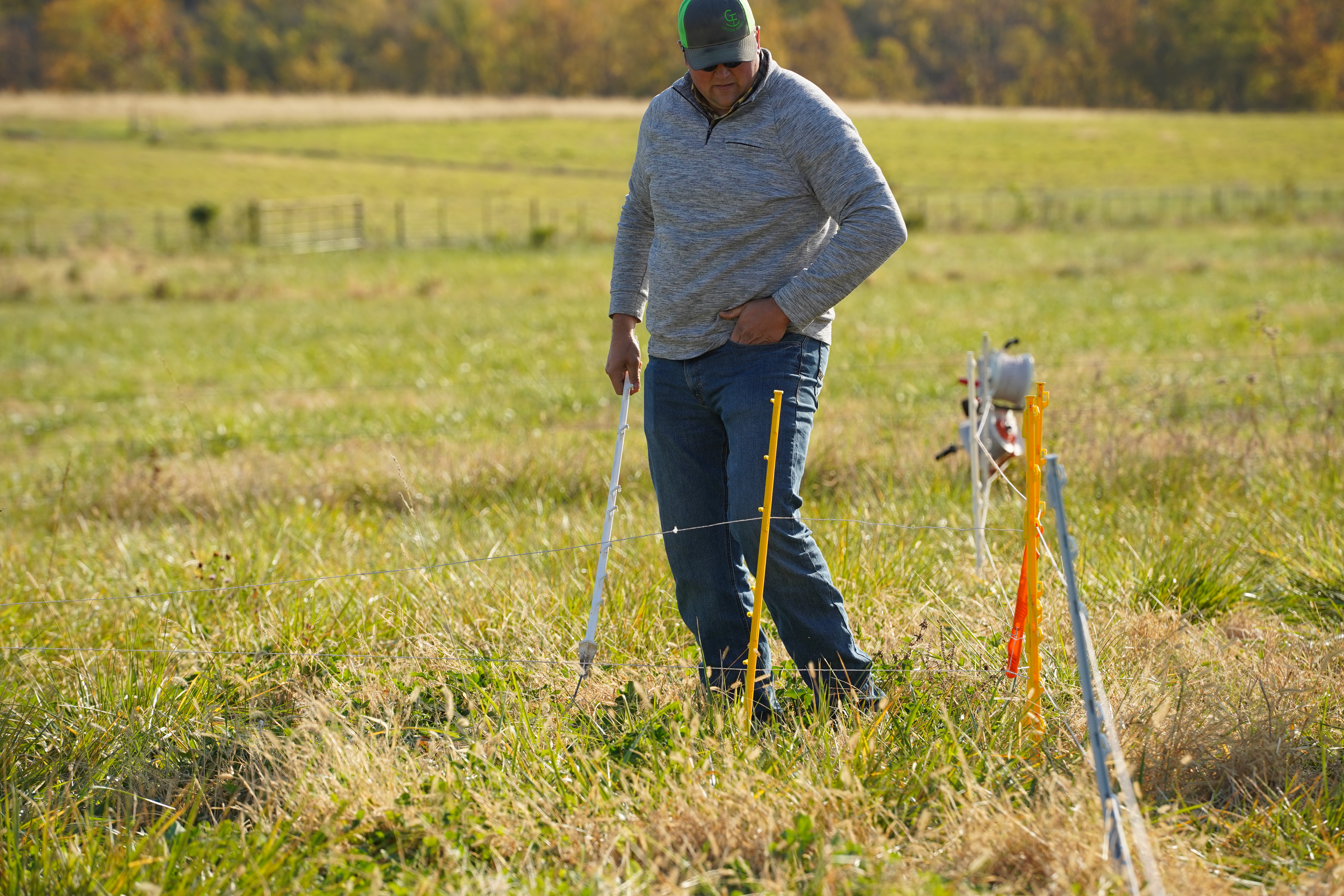 Lincoln University staff demonstrate regenerative grazing methods in the field, providing hands-on guidance to participants aiming to enhance their own pasture management practices.
Lincoln University staff demonstrate regenerative grazing methods in the field, providing hands-on guidance to participants aiming to enhance their own pasture management practices.
The training also provided Lincoln University’s farm crew with valuable insights into refining their current practices. While rotational grazing has been a longstanding method used on the university’s farms, the Noble Research Institute course introduced new approaches to enhance those efforts. “Our farm crew is already practicing rotational grazing, but this course provided new insights into how we can take those efforts to the next level,” Boeckmann said. This not only benefits the university’s operations but also equips them to better support and educate local farmers who can apply these techniques to their own grazing systems.
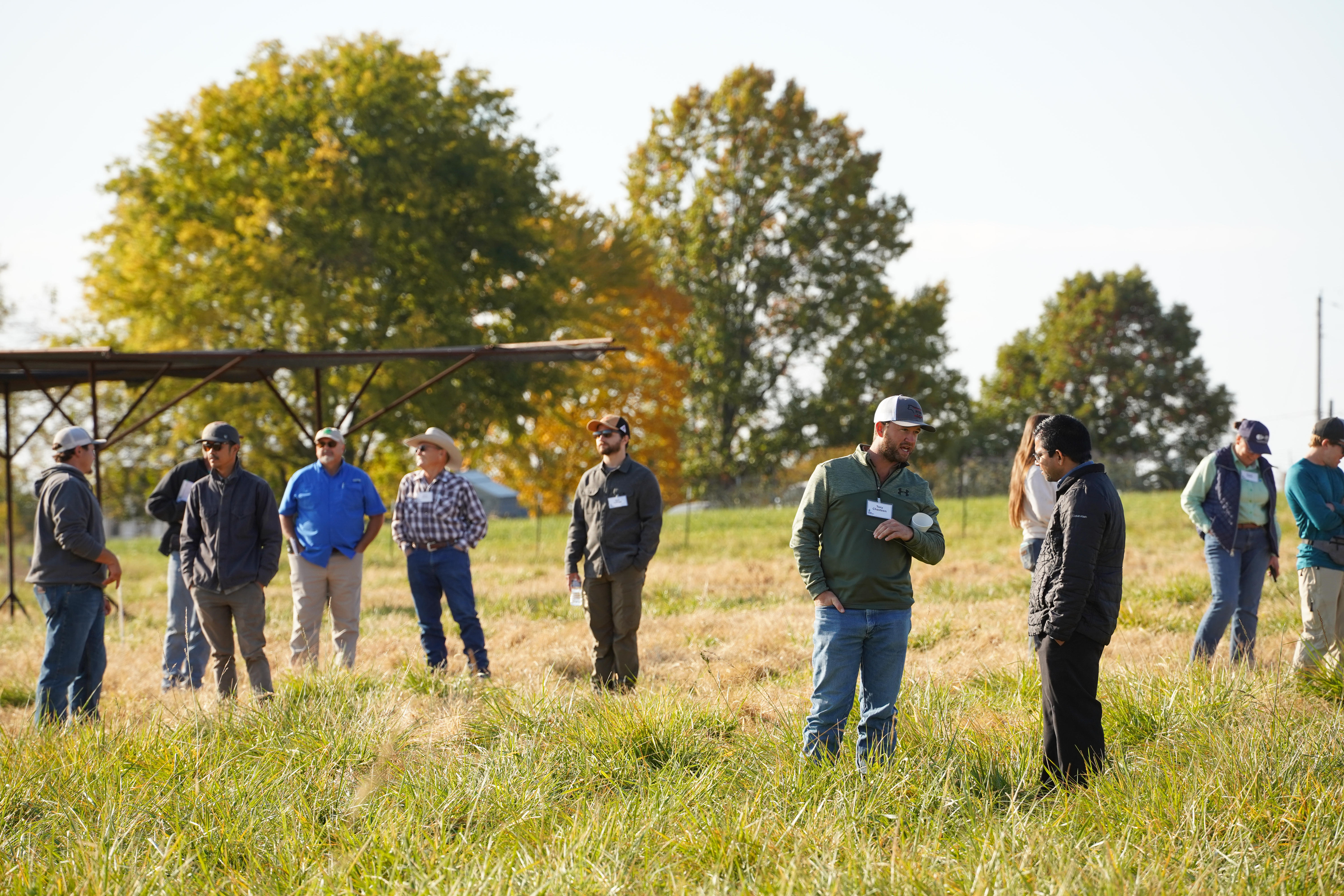
Private producers and Lincoln University staff and faculty connect between sessions at the grazing training, sharing insights and experiences on regenerative grazing practices.
The success of the training was made possible by Lincoln University’s sponsorship, which allowed 27 participants to attend at no cost. The registration fee for Noble Research Institute’s grazing course, titled Noble Grazing Essentials, is $595, a price that can be prohibitive for many small-scale producers. “We recognize that a lot of the farmers we work with have limited resources and covering the cost of this training aligns with our mission as an 1890 land-grant institution to create opportunities for underserved producers,” Boeckmann said. This support underscores Lincoln University’s ongoing commitment to empowering small-scale farmers and advancing sustainable, profitable agricultural practices.
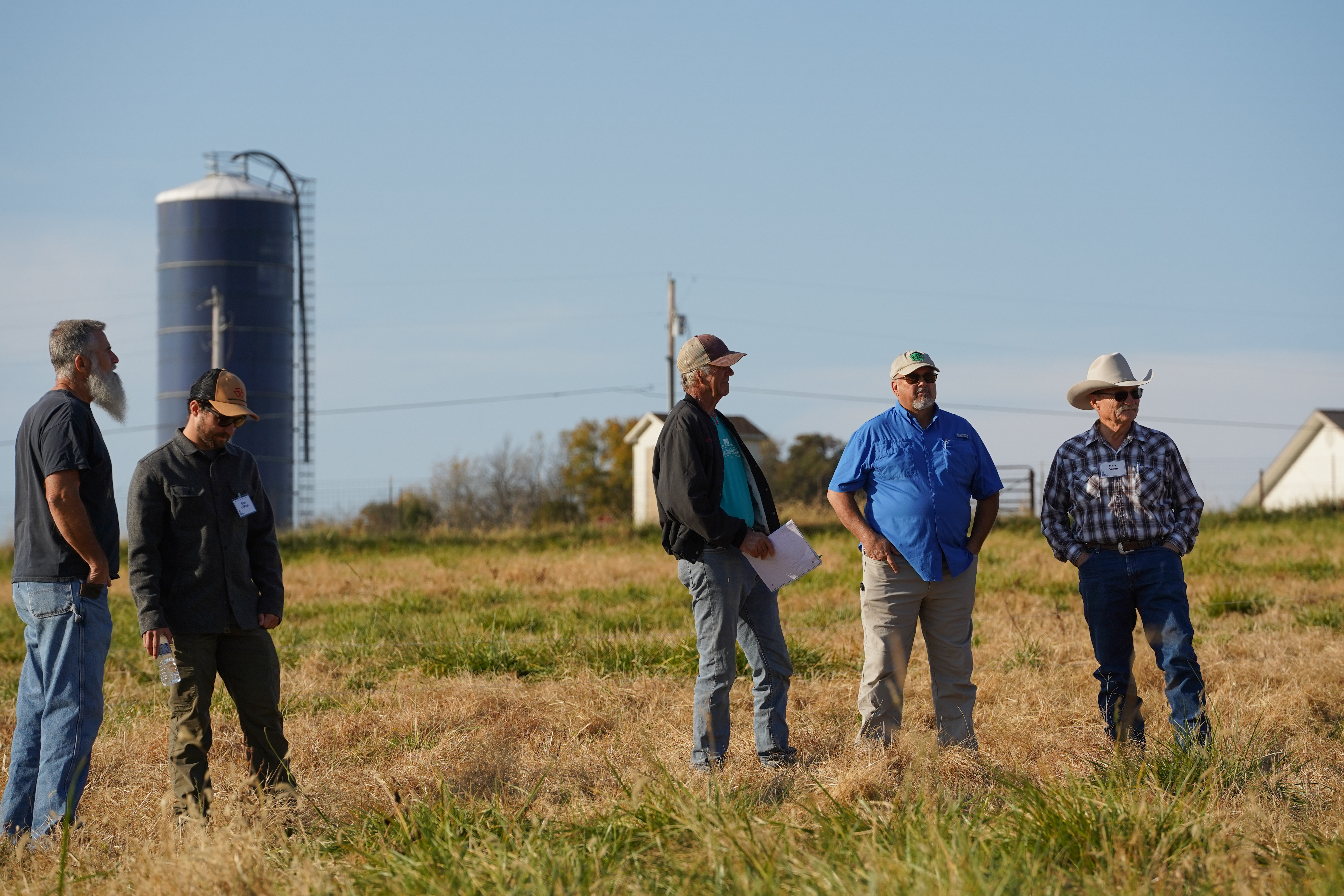
At Carver Farm, participants pause between sessions to network and discuss practical approaches to regenerative grazing, fostering collaboration and shared learning.
Lincoln University plans to build on the success of this training by continuing its collaboration with the Noble Research Institute, with future sessions focusing on soil health and financial management in grazing operations. “We’re excited to explore more opportunities with Noble, particularly in areas that will continue to benefit our farmers and the broader agricultural community,” Boeckmann said.
The Noble Research Institute, based in Ardmore, Oklahoma, is a nonprofit organization dedicated to advancing regenerative land stewardship through research-based solutions, education and consultation. For more information on regenerative grazing and upcoming Noble Research Institute courses at Lincoln University, contact Chris Boeckmann at boeckmannc@lincolnu.edu or (573) 635-2063.
